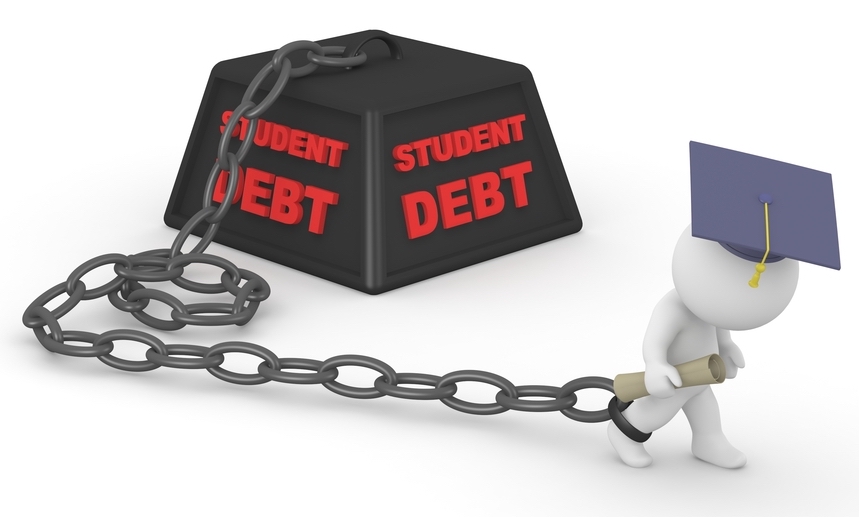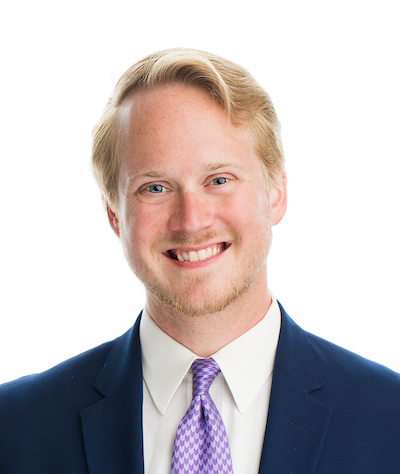If Biden approves loan forgiveness, what could that mean for law school debt?
Legal training
If Biden approves loan forgiveness, what could that mean for law school debt?
President Joe Biden spoke at a town hall in February that included student debt. Photo by Evan Vucci/Associated Press.
People with law school loans could benefit if President Joe Biden authorizes a plan to forgive all or part of student debt, but that could exclude those who owe private lenders and impose limits based on the income, experts say.
Cancellation of private school loan debt “would require the government to pay private lenders, rather than simply refusing to collect. When I think of the simpler route, it would be much easier to cancel the debt held by the federal government,” says Heather Jarvis, a North Carolina attorney who provides educational resources and training for student borrowers.
The issue of student debt cancellation featured prominently in the 2020 presidential campaign. In April, the White House announced that Education Secretary Miguel Cardona had been asked to explore the power of President Joe Biden to cancel student loans, reports USA Today.
Meanwhile, people on federal student loans have been granted interest-free forbearance since March 2020, under the Coronavirus Aid, Relief, and Economic Security Act. This was later extended until September 2021.
 Image taken from Shutterstock.com.
Image taken from Shutterstock.com.
Jarvis could also see a loan forgiveness plan with a needs assessment based on debtor income. The Student Loan Debt Relief Act, a 2019 bill sponsored by Senator Elizabeth Warren, a Democrat from Massachusetts, suggests forfeiting up to $50,000 for borrowers whose adjusted gross income does not exceed $100,000. Borrowers with gross income above the number could receive partial loan forgiveness. In 2019, it was referred to the Finance Committee. Senator Bernie Sanders, a Democrat from Vermont who, like Warren, sought the 2020 presidential nomination, argued for the cancellation of all student loan debt.
Biden may be more conservative on student loan forgiveness than other Democrats. At a CNN town hall in February, he said he supported giving student loan forgiveness up to $10,000. The president also said he was not in favor of canceling loans for people who attended elite schools.
Cancellation of your loans “may depend on whether you attend a public or private school,” says Nancy Conneely, director of policy at the AccessLex Institute.
Also, if it’s determined that the president doesn’t have the executive power to cancel student loan debt and the matter goes to Congress, Conneely doesn’t think there would be enough votes to support a debt cancellation bill. She hasn’t seen Republican lawmakers support canceling student loans, but she says some favor other ways to help people in debt.
The SIMPLE law, which would help borrowers enroll in the plans and automatically recertify their income, has bipartisan support, Conneely said. She adds that there is bipartisan support for the Public Service Loan Forgiveness Program and that the House PSLF Caucus is co-chaired by Rep. David P. Joyce, a Republican from Ohio, and Rep. Brendan Boyle, a Pennsylvania Democrat.
“As a candidate, the president said he would revise the PSLF program to allow for gradual forgiveness — $10,000 in forgiven student loan debt for each year of public service up to five years,” Conneely said.
In 2016, the American Bar Association sued the US Department of Education after it changed its interpretation of PSLF regulations. Four attorneys, two of whom had worked at the ABA, were also plaintiffs in the United States District Court for the District of Columbia action. In 2019, a federal judge found that the department’s rule changes were arbitrary and capricious, and the suit was settled in 2020. That same year, the organization received a letter from the DOE, stating that all ABA employers full-time were eligible for the PSLF program.
The same year, the ABA’s Young Lawyers Division published a survey of young lawyers’ student loan debt, with AccessLex providing analysis of the data; 1,084 attorneys were surveyed, and the average student loan total at the time of law school graduation, including undergraduate and other loans, was $164,742. Many respondents said their loans contributed to mental health issues.

Aaron Sohaski.
Aaron Sohaski, a Detroit attorney who serves as director of student debt and financial wellbeing for the YLD, says they are planning a second investigation, starting in late spring or early summer, focused on student debt and mental health.
Additionally, the YLD recently introduced a resolution calling on the federal government to establish programs to help lawyers and law students experiencing financial hardship related to student loans. It was passed by the House of Delegates at the 2021 biannual meeting.
Another YLD resolution, which calls for changes to the US bankruptcy code so that student loans can be forgiven, is expected to go to the House of Delegates at the August annual meeting, Sohaski said.
He adds that the resolution passed at the mid-year meeting enables the ABA’s office of government affairs to advocate for improvements to school loan programs. He thinks the upcoming mental health study will also play a role.
“We believe this will further strengthen our case for why there should be reform in this space and why we should be zealous advocates for our members,” says Sohaski, director of contracts and compliance for the system of Health Henry Ford.

.jpeg)
Comments are closed.